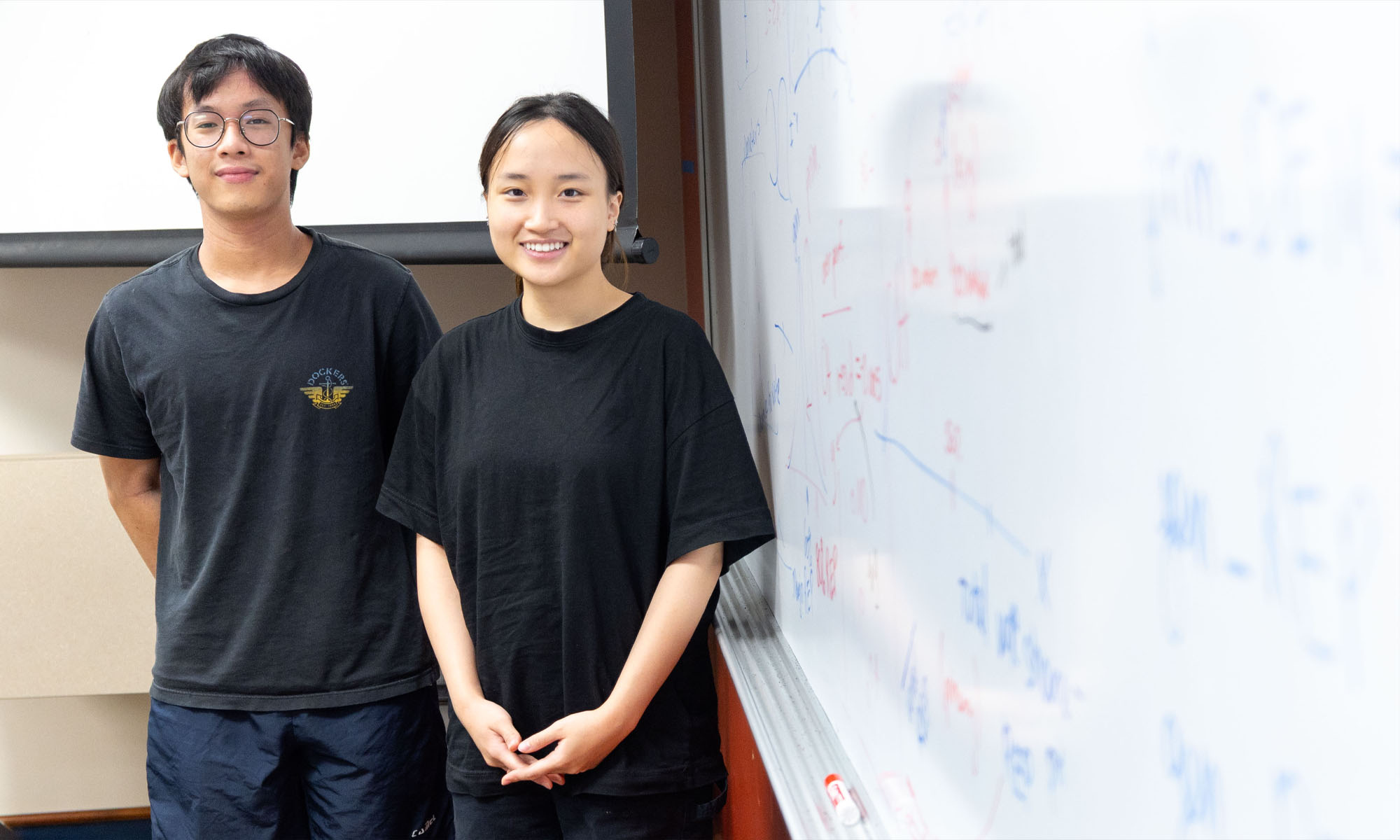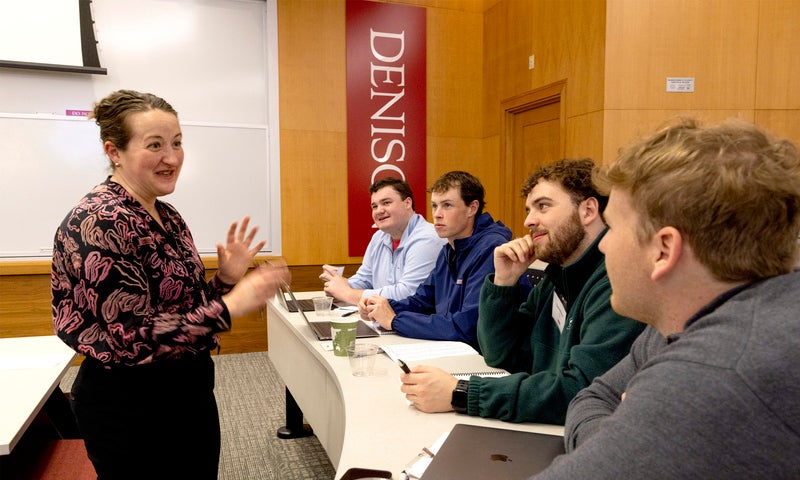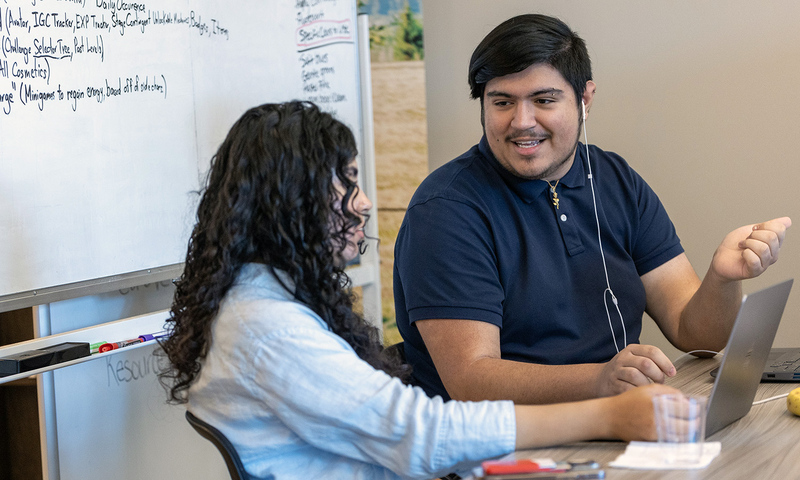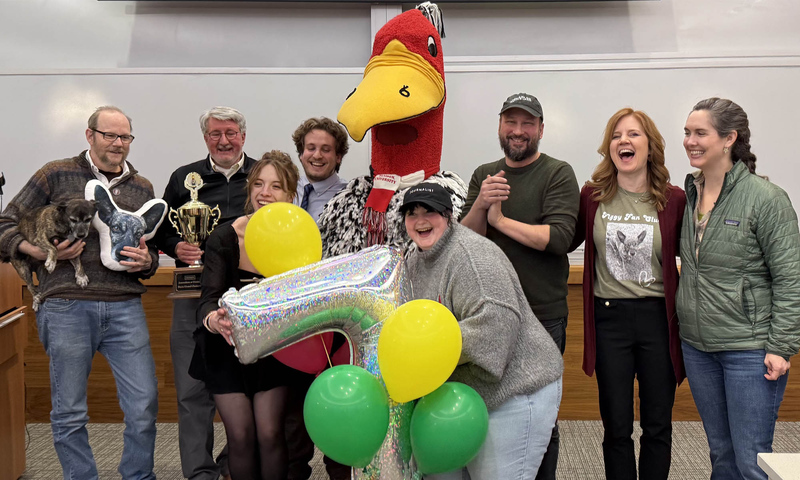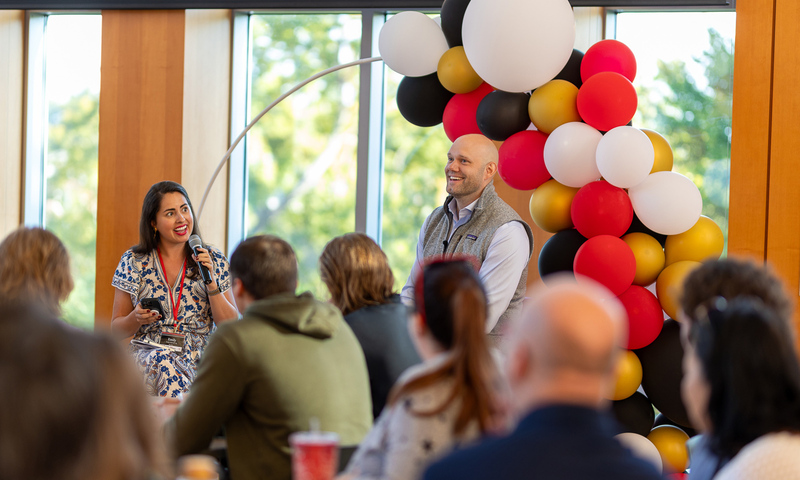Linh Bui ’27 and Huy Phan ’27 spent five weeks this summer learning the art of mathematical modeling and how its application can help predict the outcome of presidential elections.
Visiting assistant professor of mathematics Sara Clifton, who oversaw the research, knows there’s a more fundamental lesson to be gleaned from her students’ experience. Through moments of frustration, confusion, clarity, and triumph, they are learning about themselves as researchers.
“I’m finding out how determined I am to come up with questions that might not have an answer,” says Phan, an applied mathematics and computer science double major.
“I’ve learned to believe in myself more,” says Bui, an economics major minoring in mathematics. “I have to keep going and figure it out.”
Phan and Bui are contributing valuable research to a project that a group of six scholars, sponsored by the American Mathematical Society, began in 2023: forecasting general election outcomes using precinct data from party primaries. It’s not just about predicting winners and losers but gaining insights into voters’ decision making.
Does a strong turnout in party primaries lead to a strong turnout in the general election? Does party infighting influence outcomes?
The group’s research revealed that voters in a state where they expect their party to win are less likely to turn out for the general election. Huy calls this “winner complacency.”
The research is grueling work in which progress is seldom linear and momentum is often fleeting. It’s a process of making assumptions and sometimes producing data that contradicts those assumptions.
Clifton is proud of her young researchers’ contributions. They are learning to think critically and work through setbacks in analyzing precinct data from the 2016 presidential primaries.
She reassured the students that feelings of frustration are natural in complex research, and there are long-term scholarly benefits for sticking with it. Clifton recalls oscillating between “little victories and existential crisis” as a student pursuing her doctorate in engineering sciences and applied mathematics at Northwestern University.
“You make progress and then have to start over again,” Clifton says. “It’s not unlike playing a video game, where you reach a certain level and you get killed and start over again. The fact you make it a little further each time shows you are learning something.”
Bui began working on Clifton’s election project in the 2025 spring semester as part of a six-student independent research team that earned two credits. Bui had never done coding before tackling the project.
“I’ve learned a lot about data processing,” Bui says. “I’m getting better at it, and I’m doing the work faster.”
Clifton has collected data from 34 states so far and doesn’t anticipate completing the project for another 18 months – “the research always takes longer than you expect.” She will continue to recruit students from various majors to assist in the work.
“It’s been very challenging,” Bui says. “But I’ve learned a lot from doing this research. I find it very interesting.”

